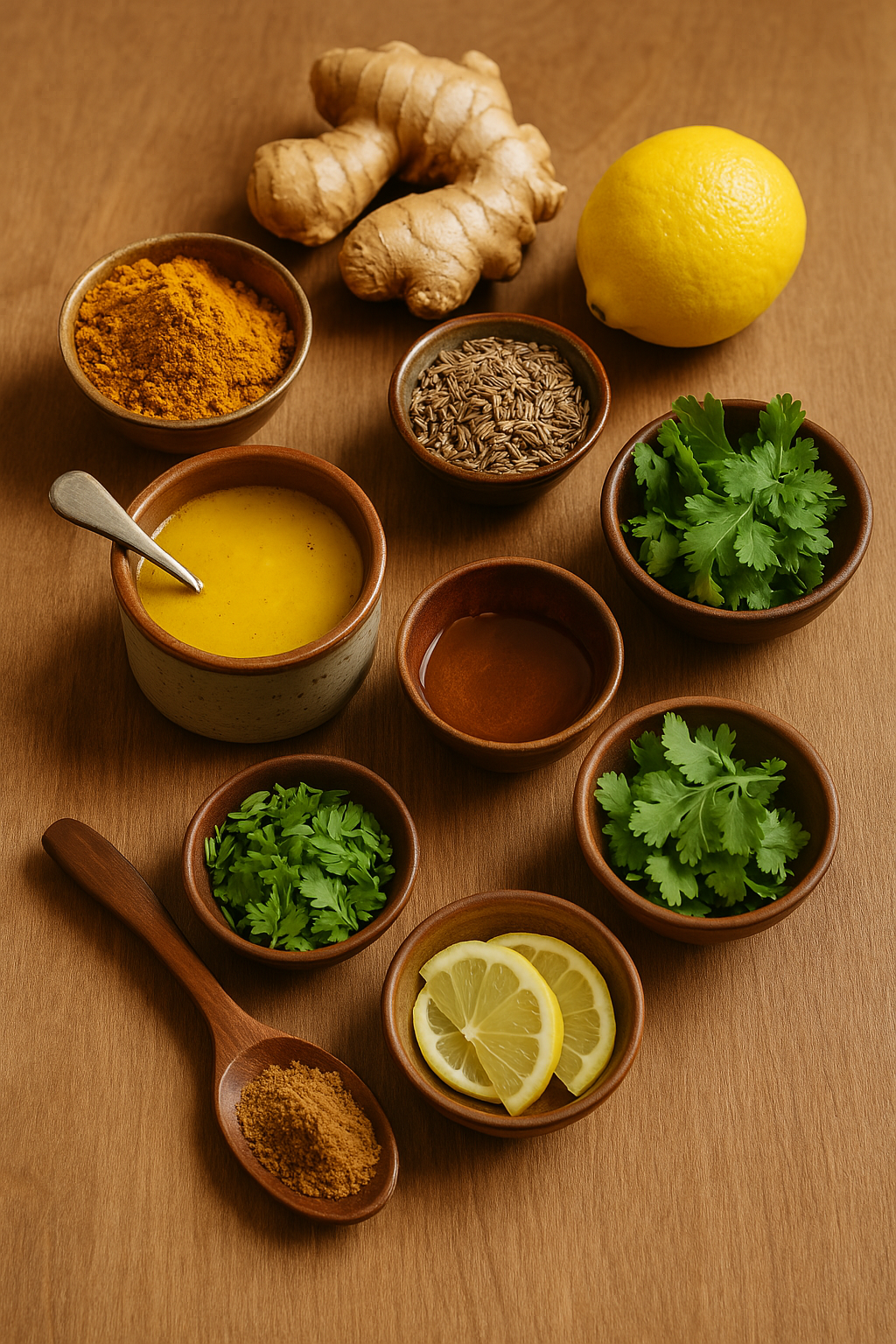7 Ayurvedic Superfoods You Already Have in Your Kitchen

Unlock the healing power of everyday Ayurvedic superfoods—like turmeric, ghee, ginger, and lemon—already in your kitchen, to boost digestion, immunity, and balance your doshas naturally and affordably.
Ayurveda doesn’t believe in chasing trendy powders or exotic berries from across the world. Instead, it recognizes that true superfoods are simple, natural, and often already in your kitchen. These everyday ingredients nourish the body, boost immunity, strengthen digestion, and balance the doshas—making them powerful allies in daily wellness.Here are 7 Ayurvedic superfoods that are likely already in your pantry or fridge, along with their healing benefits and easy ways to use them:
1. Turmeric (Haridra)
Dosha impact: Balances all doshas, especially Pitta and Kapha
Benefits: Potent anti-inflammatory and antioxidant. Supports liver detox and joint health. Enhances immunity and skin radiance.
How to use it: Add to curries, soups, or lentils. Stir into warm milk with black pepper for golden milk. Apply topically with honey for skin issues
2. Ghee (Clarified Butter)
Dosha impact: Balances Vata and Pitta; should be used in moderation for Kapha
Benefits: Nourishes tissues and lubricates joints. Enhances memory and concentration
Strengthens digestion (agni)
How to use it: Use as a cooking fat or drizzle over rice/dal. Mix with herbs for deeper tissue delivery (anupan). Add a spoonful to warm milk before bed for better sleep
3. Ginger (Adrak/Shunthi)
Dosha impact: Balances Vata and Kapha; can aggravate Pitta in excess
Benefits: Boosts agni and relieves bloating. Improves circulation and clears mucus. Supports immune defense
How to use it: Brew as fresh ginger tea. Grate into stir-fries or soups. Chew a small slice with salt before meals to kindle digestion
4. Cumin (Jeera)
Dosha impact: Balances all three doshas
Benefits: Aids digestion and nutrient absorption. Relieves gas and bloating. Mildly detoxifying and cooling
How to use it: Dry roast and grind for spice blends. Boil with fennel and coriander for CCF tea. Add to tempering in dals and vegetable dishes
5. Honey (Madhu)
Dosha impact: Balances Kapha; increases Pitta and Vata if overheated or overused
Benefits: Natural prebiotic and immune booster. Clears excess mucus and supports respiratory health. Acts as an anupan (carrier) for herbs
How to use it: Mix with warm (not hot) water and lemon in the morning. Combine with turmeric or ginger for sore throat relief. Use as a natural sweetener in herbal teas
Note: Never cook honey—heating destroys its healing properties and makes it toxic according to Ayurveda.
6. Coriander (Dhaniya)
Dosha impact: Especially good for cooling excess Pitta
Benefits: Supports detoxification and digestion. Reduces inflammation and urinary heat. Promotes clear skin and hormonal balance
How to use it: Brew as coriander seed tea. Chop fresh leaves into chutneys and salads. Dry roast and grind into spice blends
7. Lemon
Dosha impact: Balances Vata and Kapha; can aggravate Pitta in excess
Benefits: Stimulates digestion and bile flow. Alkalizes the body and cleanses the liver. Enhances taste and nutrient absorption
How to use it: Squeeze over meals or into warm water. Combine with ginger or honey for digestion. Add to dressings, dals, and soups
Final Thoughts: You don’t need exotic or expensive ingredients to eat well. Ayurveda teaches that everyday kitchen staples—when used mindfully—can become powerful tools for health, healing, and longevity.Start by incorporating one or two of these ingredients daily. Observe how your digestion, energy, and mood respond. Over time, these humble superfoods will help you build resilience, restore balance, and nourish your system from the inside out.




